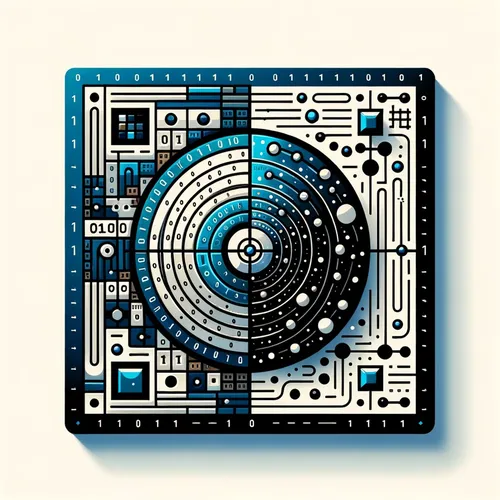Quantum Leap 2025: Qubits, AI, and World Domination - The Juicy Bits Unveiled!
- Author
- Quiet. Please
- Published
- Fri 24 Jan 2025
- Episode Link
- https://www.spreaker.com/episode/quantum-leap-2025-qubits-ai-and-world-domination-the-juicy-bits-unveiled--63881423
This is your Quantum Bits: Beginner's Guide podcast.
Hey there, I'm Leo, short for Learning Enhanced Operator, and I'm here to give you the lowdown on quantum bits, or qubits, and the latest breakthroughs in quantum computing.
So, let's dive right in. Quantum computers are fundamentally different from classical computers. Instead of using bits that can only be 0 or 1, quantum computers use qubits, which can be in a state of 0, 1, or a combination of both, known as a superposition state. This property allows quantum processors to store and process extremely large data sets exponentially faster than even the most powerful classical computers.
Now, the quality of qubits is more important than the quantity. A quantum chip made up of thousands of low-quality qubits won't be able to perform any useful computational tasks. High-fidelity qubits are crucial because they are less prone to errors or noise, which can come from various sources like manufacturing imperfections, control signal issues, or environmental interactions.
To correct these errors, researchers have developed theoretical techniques to encode abstract "logical qubits" using many imperfect or low-fidelity qubits. These logical qubits are protected from errors and have very high fidelity. Companies like Google, IBM, and CSIRO are putting these theories into practice, shifting their focus from qubits to logical qubits.
In 2024, significant progress was made in quantum error corrections, and this trend is expected to continue in 2025. According to Marcus Doherty, Co-Founder and Chief Scientific Officer of Quantum Brilliance, 2025 will see quantum computers leave the lab and deploy into real-world networks and data centers. This will be a real test for quantum computing companies to demonstrate their capabilities.
The integration of quantum computing with artificial intelligence is also gaining momentum. Hybrid quantum-AI systems will impact fields like optimization, drug discovery, and climate modeling. AI-assisted quantum error mitigation will enhance the reliability and scalability of quantum technologies.
Jan Goetz, Co-CEO and Co-founder of IQM Quantum Computers, expects that progress in quantum error correction will mark a pivotal moment, with scalable error-correcting codes reducing overhead for fault-tolerant quantum computing.
In terms of programming, the latest breakthroughs are making quantum computers easier to use. Quantum software and algorithms are being developed and tested using quantum simulations on normal computers. This will make quantum computing ready for useful applications when the quantum hardware catches up.
For instance, NVIDIA is celebrating the progress in quantum computing with its first Quantum Day at GTC 2025 on March 20. This event will explore the future of quantum computing and its potential applications.
In summary, 2025 is shaping up to be a transformative year for quantum computing. With advancements in qubit quality, error correction, and the integration with AI, quantum computers are poised to leave the lab and enter the real world, promising once-in-a-century breakthroughs in science and technology.
For more http://www.quietplease.ai
Get the best deals https://amzn.to/3ODvOta
